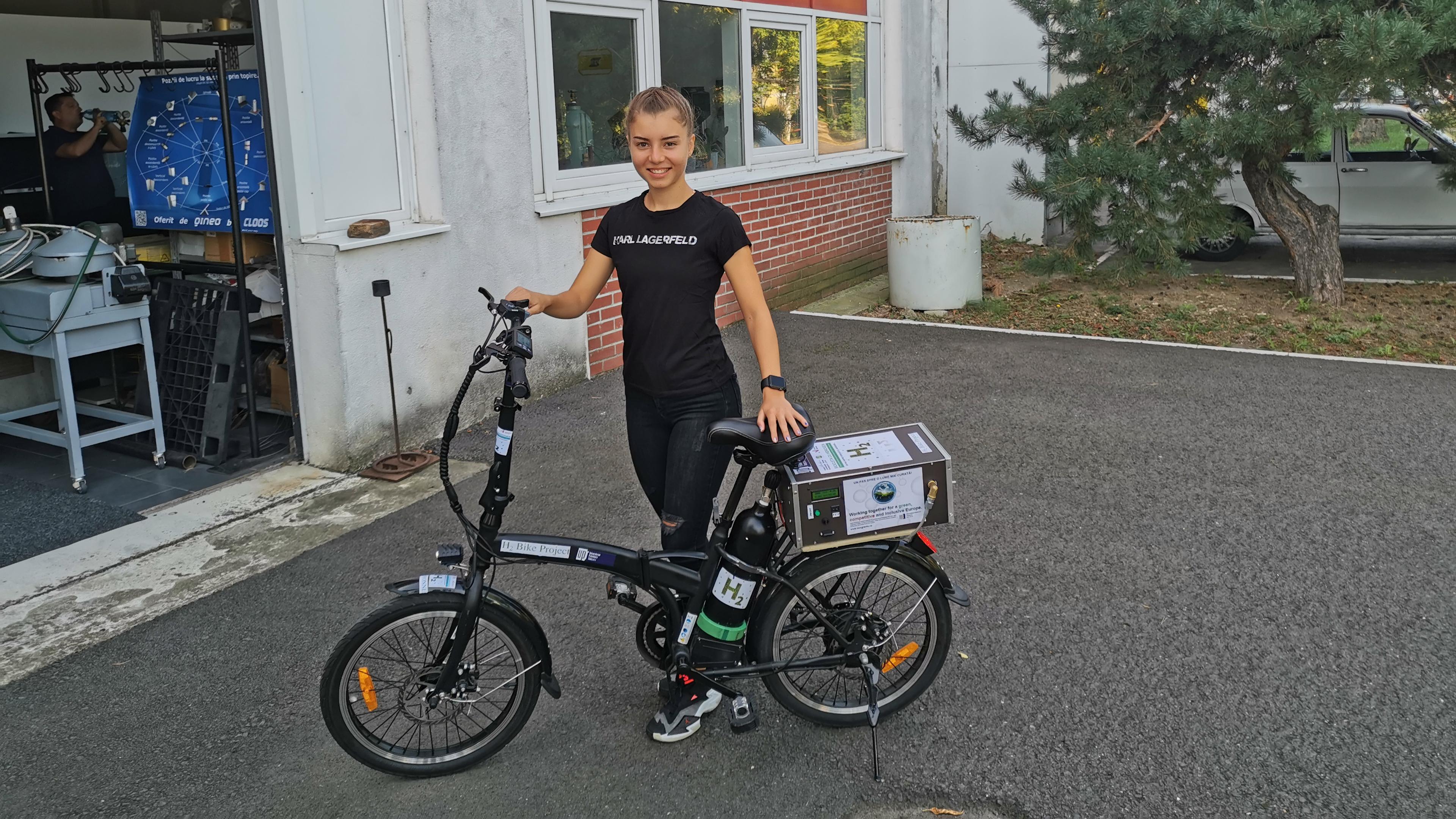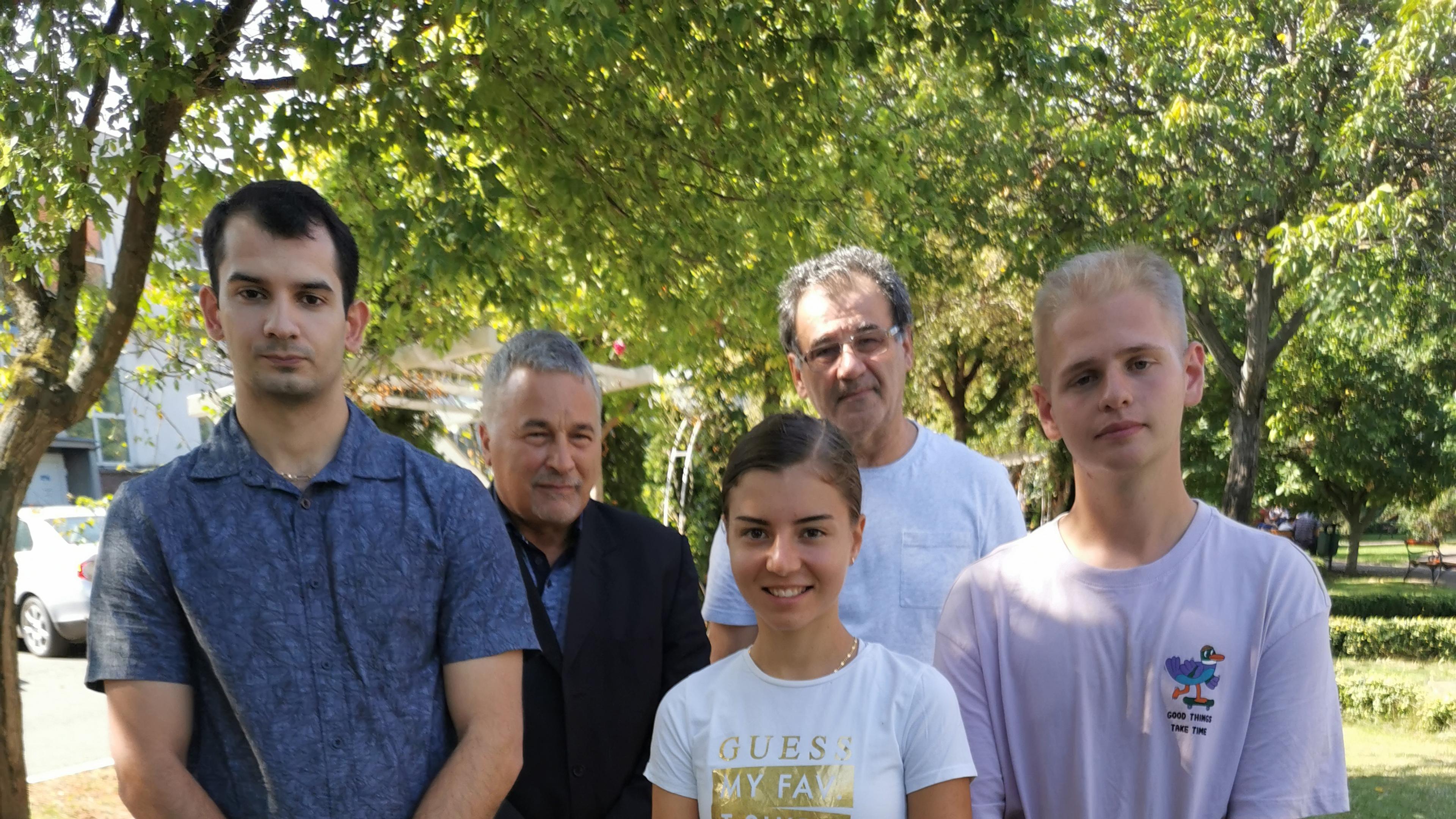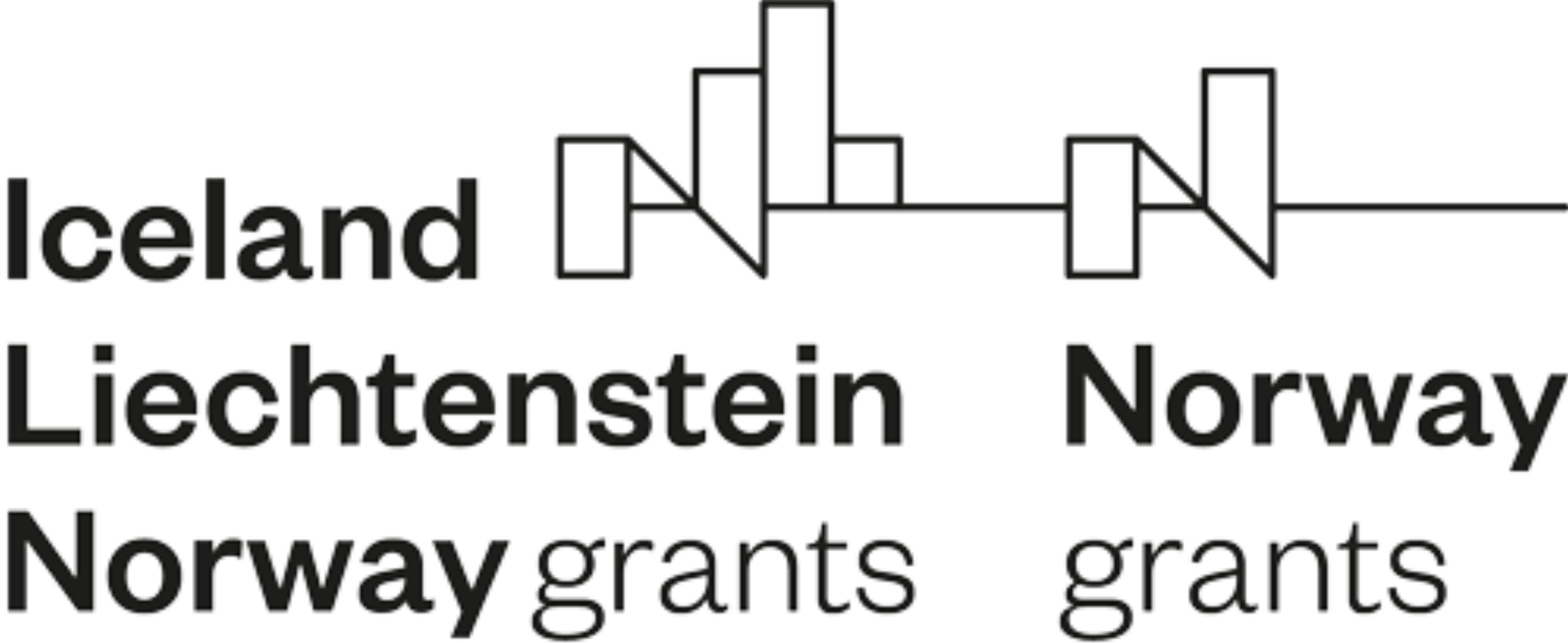A Premiere in Romania: The Hydrogen Bike
 © Technical University of Timisoara
© Technical University of TimisoaraIn the heart of Timișoara, these three determined students took a simple idea and turned it into an engineering marvel—a hydrogen-powered bicycle. Through rigorous theoretical studies and hands-on training, they gained invaluable skills in harnessing the potential of hydrogen as an alternative fuel source. Their journey was part of the larger RONNES project, an initiative aimed at promoting renewable energy resources.
 © Technical University of Timisoara
© Technical University of TimisoaraInnovation Norway: Can you share the story behind the creation of the hydrogen-powered bike?
Student: It all began with a shared passion for clean energy and sustainable transportation. We wanted to push the boundaries and explore the potential of hydrogen as an alternative fuel source. The idea of a bike seemed like a practical starting point.
Student: Absolutely. We knew that to bring this idea to life, we needed to immerse ourselves in the science behind it. We started with theoretical studies on hydrogen generation through electrolysis and its conversion into energy using fuel cells.
Innovation Norway: What were the educational benefits for you as students, both in practical skills and theoretical knowledge?
Student: The learning curve was steep, but incredibly rewarding. We gained practical skills related to the use of hydrogen in real-world applications. We went from theoretical studies to hands-on training in designing and implementing the technical solution to power the hydrogen bicycle.
Innovation Norway: Were there any unique insights gained about hydrogen as an energy source that might have broader implications for the renewable energy sector?
Prof. Craciunescu: Definitely. Through our involvement in the RONNES project, we've come to appreciate the enormous potential of hydrogen. It's a game-changer in the world of renewable energy. People in Romania are just starting to grasp its possibilities in automotive applications. This project has been instrumental in educating the public about hydrogen's potential and the importance of diversifying our energy sources for a sustainable future.
Innovation Norway: What can you tell us about the potential environmental impact of widespread adoption of hydrogen-powered vehicles?
Student: Well, it's important to note that hydrogen energy in Romania is in its early stages. We don't have hydrogen refilling stations yet, with the closest one currently in Hungary. But the National Resilience Plan has ambitious goals, and we believe Romania is on the right track.
As the project unfolded, the students collaborated closely with educational institutions, involving thousands of students and professors. This collective effort was a testament to the importance of knowledge-sharing and collaboration in driving innovation.
Innovation Norway: Were there any key collaborations that contributed to the success of this project?
Student: Yes. The RONNES project brought together various institutions, including the Politehnica University of Timișoara, School Inspectorates, and thousands of students and professors. This collective effort was crucial in educating students about renewable energy, with a strong emphasis on hydrogen.
Innovation Norway: What's next for your team in the realm of renewable energy?
Professor Craciunescu: Building on this success, we're exploring applications with three and four wheels. We're actively seeking support from regional automotive companies to advance these initiatives. Companies like Corratec bicycle and Linde Gas have already shown interest. With their support, we're poised to make significant strides in the development of hydrogen applications.
The hydrogen-powered bicycle created by these Timișoara students is not just a mode of transportation—it's a symbol of ingenuity, collaboration, and a brighter future. As they continue to push boundaries, their legacy will be felt in every pedal stroke towards a more sustainable world.
About the Energy Programme in Romania
The Energy Programme in Romania, managed by Innovation Norway, aims at less carbon intensive energy and increased energy security, providing grants for investments in renewable energy, energy efficiency and electrification of households. The Programme financing is ensured through the EEA and Norway Grants which contribute to social and economic development in 10 European countries, including Romania.
About Innovation Norway
Innovation Norway is the Norwegian Government's most important instrument for innovation and development of Norwegian enterprises and industry. Innovation Norway supports companies in developing their competitive advantage and to enhance innovation. In Romania, Innovation Norway is managing two programmes: the Energy Programme and the SMEs Growth Programme.
